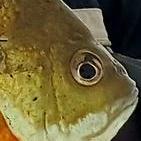
By Dash 1 · Posted

By Rick G · Posted

By Eyeguyroyce54 · Posted

By smurfy · Posted


By Eyeguyroyce54 · Posted

By smurfy · Posted

By leech~~ · Posted

By monstermoose78 · Posted

By monstermoose78 · Posted
By using this site, you agree to our Terms of Use and Privacy Policy. We have placed cookies on your device to help make this website better. You can adjust your cookie settings, otherwise we'll assume you're okay to continue.

Recommended Posts
Join the conversation
You can post now and register later. If you have an account, sign in now to post with your account.
Note: Your post will require moderator approval before it will be visible.